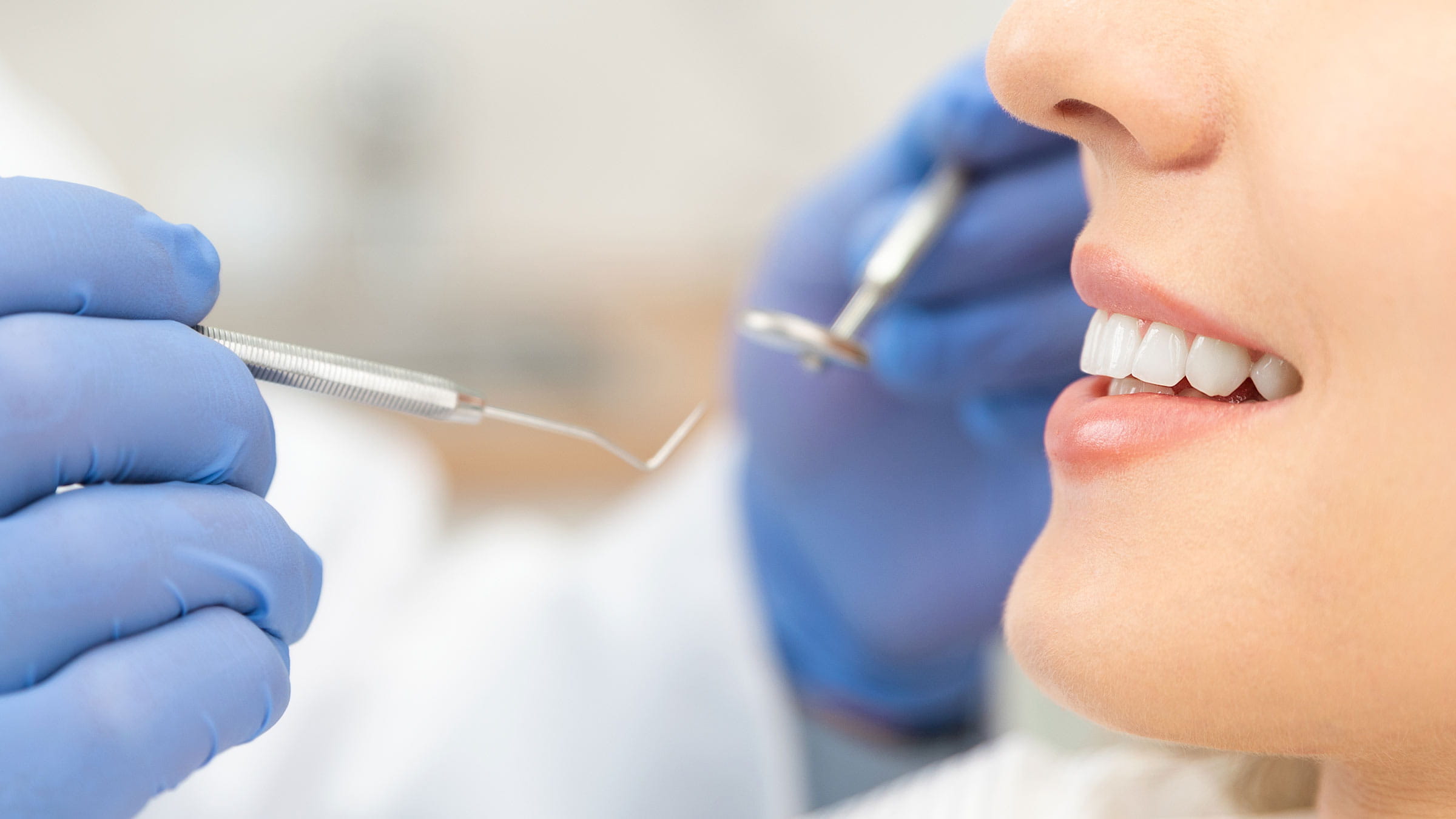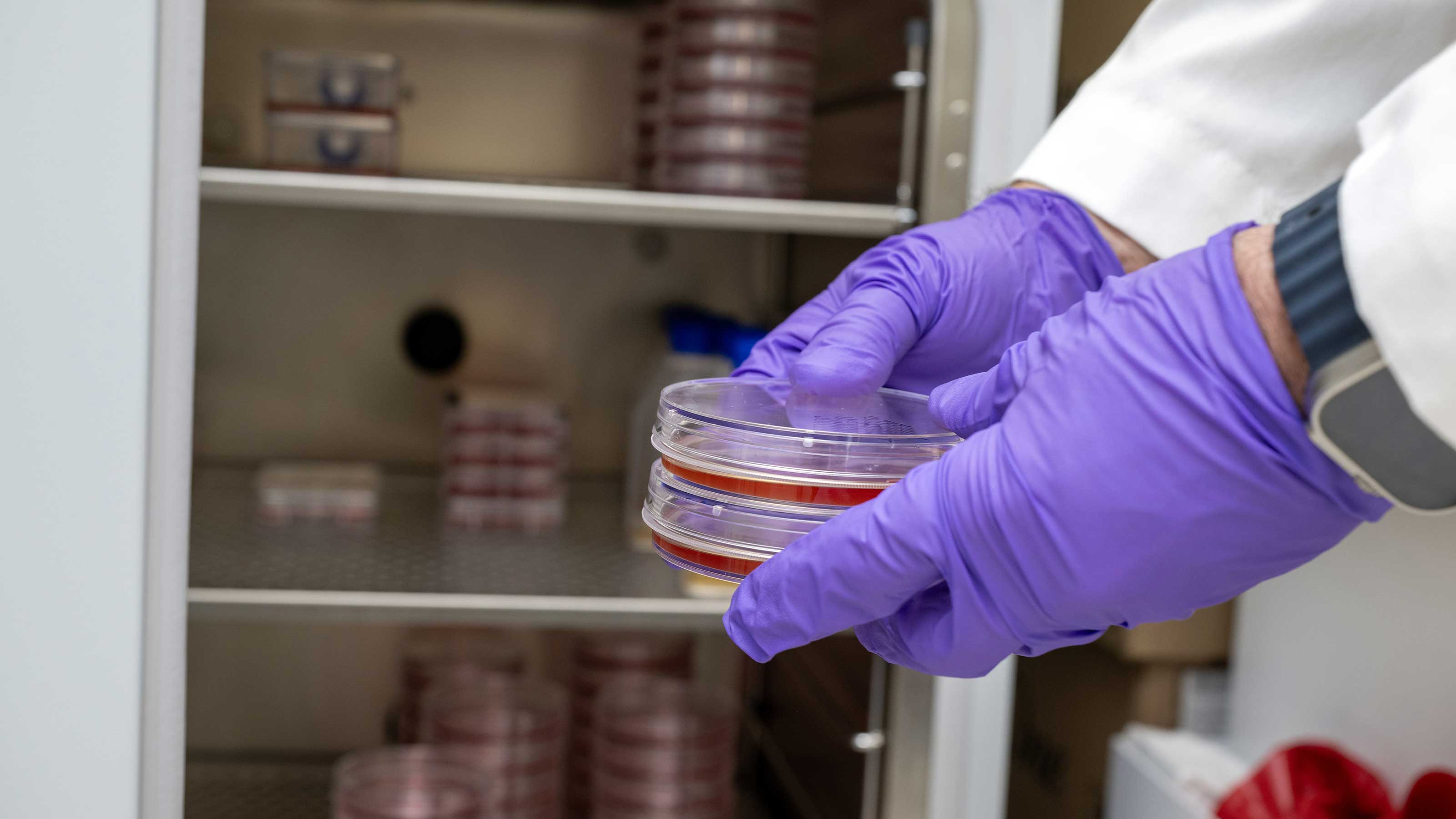
When you’re facing a cancer diagnosis, a trip to the dentist may be the last thing on your mind, but it’s important to ensure your dental health doesn’t suffer when undergoing chemotherapy, radiation or other cancer treatments.
If you’re able, it’s a good idea to visit your dentist or a dental oncology clinic to inform them of your diagnosis and get a thorough exam or “dental clearance” before starting treatment.
Which types of cancer treatments can impact oral health?
Chemotherapy or bone marrow/stem cell transplant
These treatments can cause patients to become immunocompromised for a time, so it’s important to treat any tooth or gum infections prior to starting. A dental professional also can treat cavities and gum disease to prevent problems from occurring during cancer treatment.
Radiation therapy to help treat head and neck cancer
Patients having head and neck cancer treatments are especially in need of dental clearance before starting. Radiation to the head and neck can increase the risk of a condition called “osteoradionecrosis of the jaw,” particularly if someone has dental extractions after radiation. Therefore, any infected or poor-prognosis teeth must be extracted before treatment. This therapy also can cause xerostomia (dry mouth), which increases the risk of cavities. Patients will need to take meticulous care of their teeth to prevent problems after radiation.
Bone-strengthening medications
People who use these medications (such as bisphosphonates and other antiresorptives) as part of their cancer treatment can develop an increased risk of medication-related osteonecrosis of the jaw. Any infected or poor-prognosis teeth must be extracted before starting these treatments as well.
What type of dental care/treatments should cancer patients receive?
- A thorough exam ("dental clearance") prior to starting treatment when possible – especially before bone marrow/stem cell transplantation, head and neck radiation, or use of bone-strengthening/antiresorptive medications.
- Treatment of any active dental infections prior to starting cancer treatment.
- If possible, a thorough dental cleaning and treatment of any dental cavities or other issues that could potentially cause infection during cancer treatment.
- Prescription fluoride treatment or custom-made fluoride trays for some patients, especially those receiving radiation.
- Delay of non-urgent dental treatments, for patients with compromised immune systems, until the immune system recovers.
- Visit to a dental oncologist during cancer treatment for jaw stiffness, altered taste, dry mouth, mouth sores or pain, gum bleeding or swelling, and any possible cavities or infections.
What if I need major dental care during cancer treatment?
If you need more invasive dental treatments, such as extractions or other oral surgeries, during or soon before cancer treatments, you should inform your oncology team. Some people could have low blood counts due to chemotherapy or due to the cancer itself and may be more prone to bleeding or post-operative infections. Your dentist or oral surgeon can work with your oncology team to optimize the timing of dental treatments around your cancer treatment schedule.
What do I need to know about my dental health after cancer treatment?
After cancer treatments, have a dental evaluation at least every six months, or every three months if you’re at high-risk for dental problems, and be diligent about caring for your teeth and gums at home.

Comprehensive dental care for cancer patients
The Dental Oncology Clinic at The Ohio State University College of Dentistry is the first of its kind.
Learn more




